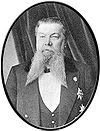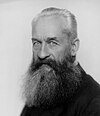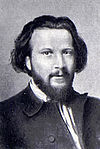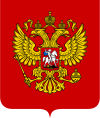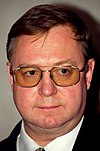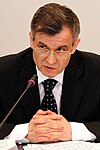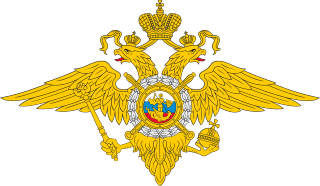
The Ministry of Internal Affairs of the Russian Federation is the interior ministry of Russia.
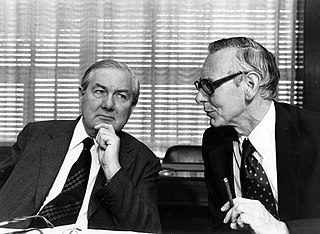
In many countries, the ministry of foreign affairs is the highest government department exclusively or primarily responsible for the state's foreign policy and relations, diplomacy, bilateral, and multilateral relations affairs as well as for providing support, including consular services, for a country's citizens who are abroad. The entity is usually headed by a foreign minister or minister of foreign affairs. The foreign minister typically reports to the head of government.

A ministry of finance is a ministry or other government agency in charge of government finance, fiscal policy, and financial regulation. It is headed by a finance minister, an executive or cabinet position.

Baron Boris Vladimirovich Shturmer was a Russian lawyer, a Master of Ceremonies at the Russian Court, and a district governor. He became a member of the Russian Assembly and served as prime minister in 1916. A confidant of the Empress Alexandra, under his administration the country suffered drastic inflation and a transportation breakdown, which led to severe food shortages. Stürmer simply let matters drift until he was able to be relieved of this post. He was during the course of his career Minister of Internal Affairs and Foreign Minister of the Russian Empire.

Militsiya were the police forces in the Soviet Union until 1991, in several Eastern Bloc countries (1945–1992), and in the non-aligned SFR Yugoslavia (1945–1992). The term Militsiya continues to be used in common and sometimes official usage in some of the individual former Soviet republics such as Belarus, Tajikistan, Uzbekistan and Kyrgyzstan, as well as in the partially recognised or unrecognised republics of Abkhazia, South Ossetia, Transnistria, DNR and LNR. In Russian law enforcement, the term remained official usage until 2011.

The Ministry of Internal Affairs of Ukraine is the ministry of the Ukrainian government that oversees the interior affairs of Ukraine. The ministry carries out state policy for the protection of rights and liberties of citizens, investigates unlawful acts against the interest of society and state, fights crime, provides civil order, ensures civil security and traffic safety, and guarantees the security and protection of important individuals. It is a centralised agency headed by the Minister of Internal Affairs. The ministry works closely with the office of the General Prosecutor of Ukraine. It oversees the National Police of Ukraine, National Guard of Ukraine (gendarmerie), the State Emergency Service of Ukraine, State Border Guard Service of Ukraine and the State Migration Service.
The Separate Corps of Gendarmes was the uniformed security police of the Imperial Russian Army in the Russian Empire during the 19th and early 20th centuries. Its main responsibilities were law enforcement and state security.
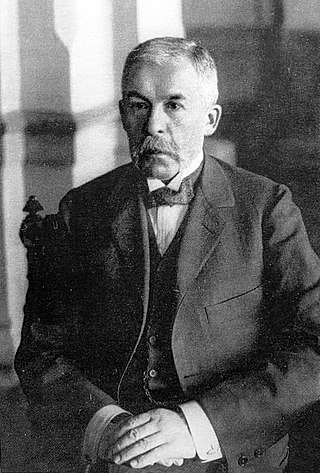
Pyotr Nikolayevich Durnovo was an Imperial Russian lawyer, politician, and member of Russian nobility belonged to House of Durnovo. Known by anti-Tsarist revolutionaries in the era of the Russian Revolution of 1905 as "the counter-revolution's butcher."

The Minister of Defence of the Soviet Union refers to the head of the Ministry of Defence who was responsible for defence of the socialist/communist Russian Soviet Federative Socialist Republic from 1917 to 1922 and the Soviet Union from 1922 to 1992.

Ministry of Police of Imperial Russia was created in the course of Government reform of Alexander I in 1810 and existed till 1819.

The Imperial Japanese Army General Staff Office, also called the Army General Staff, was one of the two principal agencies charged with overseeing the Imperial Japanese Army.

The Ministry of Foreign Affairs is the government ministry of Austria responsible for diplomatic missions and immigration, the administration of foreign policy, and the maintenance of the country's relations with international organisations, especially the European Union. It oversees the Austrian embassies, consular representatives and other emissaries, and administers the naturalisation process and handles citizenship questions along with the Interior Ministry.
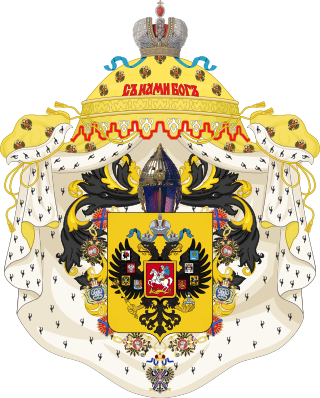
The Ministry of the Imperial Court was established in the Russian Empire in 1826, and embraced in one institution all the former separate branches of the Court administration.

The Ministry of Justice was one of the Russian Empire's central public institutions and was established on 8 September 1802. The ministry was headed by the Minister of Justice.

Arsen Borysovych Avakov is a Ukrainian statesman and politician of Armenian origin. Minister of Internal Affairs of Ukraine in 2014–2021. Member of Parliament of Ukraine (2012–2014), Chairman of the Kharkiv Regional State Administration (2005–2010), Member of the National Security and Defense Council of Ukraine, Member of Euro 2012 Organizing Committee (2007). Member of the National Union of Journalists of Ukraine. Honored Economist of Ukraine (2007).

The Minister of Internal Affairs of the Russian Federation is the head of the Russian Ministry of Internal Affairs. The Minister is appointed by the President of Russia upon recommendation of the Prime Minister of Russia. The current Minister of Internal Affairs is Vladimir Kolokoltsev.
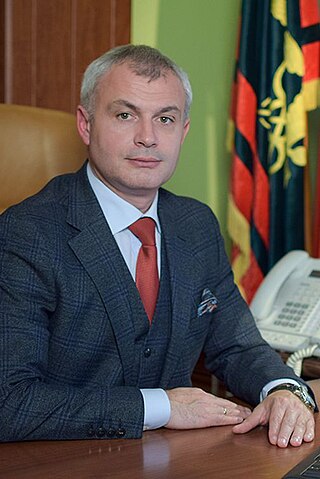
The Ministry of Internal Affairs of Transnistria also known as the Ministry of the Interior is an official government agency of the partially recognized Pridnestrovian Moldavian Republic. It is the executive body in implementing defense policies in of the Armed Forces of Transnistria. It is the successor to the Soviet Department of Internal Affairs Pridnestrovian Moldavian Soviet Socialist Republic (PMSSR) The current Minister of Internal Affairs is Major General Vitaly Neagu.
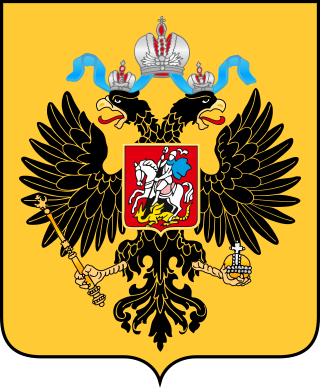
The Council of Ministers of the Russian Empire was the highest executive authority of the Russian Empire, created in a new form by the highest decree of October 19, 1905 for the general "management and unification of the actions of the chief heads of departments on subjects of both legislation and higher state administration". The ministers ceased to be separate officials, responsible to the emperor, each only for their actions and orders.

The Ministry of Internal Affairs of the Russian Empire was the state executive authority of the Council of Ministers of the Russian Empire, which carried out administrative functions in the areas of state security, public security, law enforcement, leadership of local authorities, the fight against crime, protection of places of deprivation of liberty, the licensing system, and censorship in media and book publishing.

Alexander Yegorovich Timashev was a Russian statesman. He served as Adjutant General (1859), Cavalry General (1872); Chief of Staff of the Gendarme Corps and Manager of the Third Section of His Imperial Majesty's Own Chancellery (1856–1861); Minister of Posts and Telegraphs (1867–1868); and Minister of Internal Affairs of the Russian Empire (1868–1878).



















